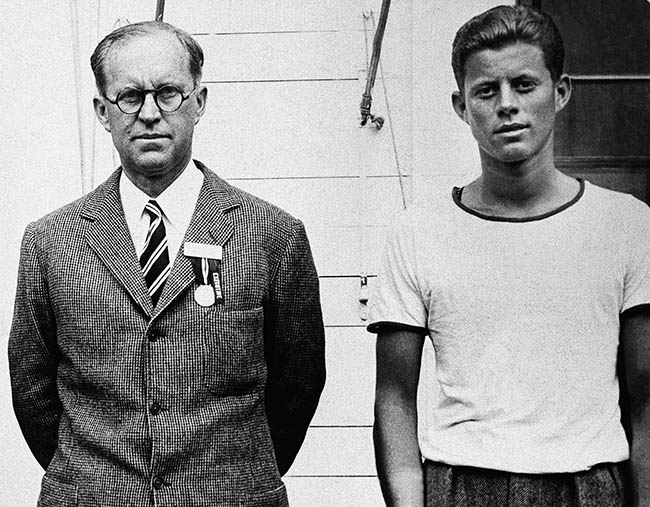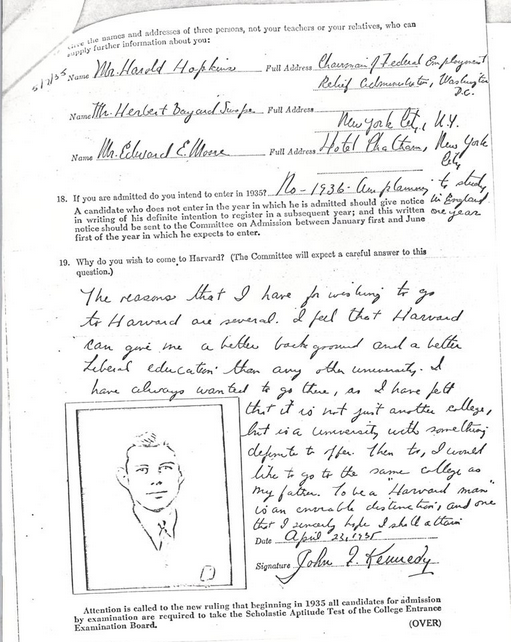JFK's Very Revealing Harvard Application Essay
At 17 years old, the future president seemed to understand that the value of an elite education is in the status it offers.

John F. Kennedy is one of the most mythologized figures in contemporary American history. At age 17, though, he was just a kid trying to get into college (a kid with a wealthy, famous father, of course).
The Kennedy Presidential Library and Museum has a digitized version of Kennedy's 1935 Harvard application, which includes his grades and his response to the essay prompt, "Why do you wish to come to Harvard?" Here's how the future president answered:
The reasons that I have for wishing to go to Harvard are several. I feel that Harvard can give me a better background and a better liberal education than any other university. I have always wanted to go there, as I have felt that it is not just another college, but is a university with something definite to offer. Then too, I would like to go to the same college as my father. To be a "Harvard man" is an enviable distinction, and one that I sincerely hope I shall attain.
April 23, 1935
John F. Kennedy

Business Insider dismisses the essay for being five sentences long (I'm not sure how much more he could have written given the space) and implies that his answer wasn't carefully considered. That's probably true—Kennedy's grades show that he wasn't an especially good student in high school, and there's not much evidence that he took his education seriously at this point in his life. Plus, as Gawker points out, Kennedy wrote nearly exactly the same essay for his Princeton application.
Still, Kennedy's essay shows a profound, if implicit, understanding of the primary value of attending an elite school: status and personal connections, rather than mastery of academic skills and knowledge. Notice that he only makes one mention of the education he'd receive at Harvard—a passing reference to the school's superior "liberal education." The rest of the paragraph focuses on the the non-academic benefits: having a "better background," sharing the same alma mater with his dad, and enjoying the "enviable distinction" of being a Harvard Man.
And it is, indeed, an enviable distinction. Harvard has produced eight United States presidents, more than any other school. The school's website has a whole section devoted to all the alumni who've won Nobel prizes. Two of its dropouts are among the richest people in America. Whether these glories are due to the school's excellent education or its impressive alumni network and name recognition, who knows? But Kennedy clearly thought he knew the answer.